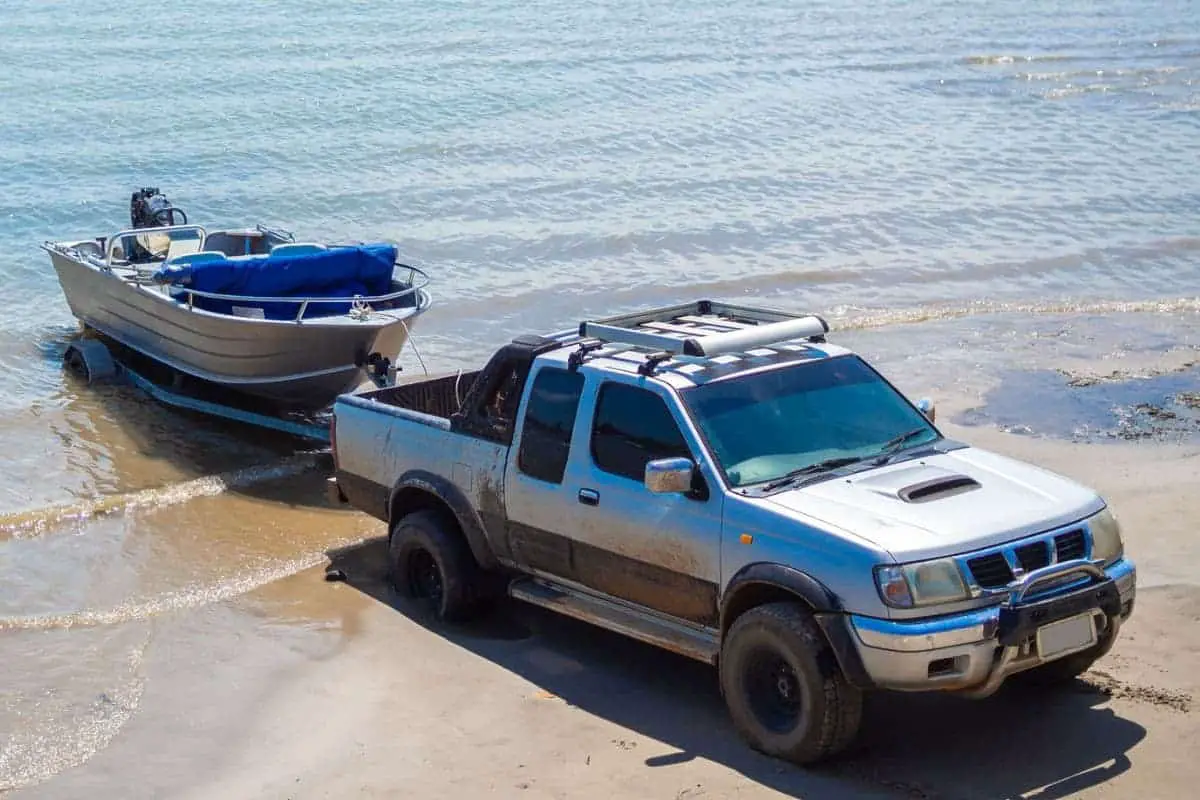Towing a boat is similar to towing any travel trailer, and you’ll have to follow the same safety guidelines. When towing a boat, you should take special care to maintain the correct tongue weight. But why is it so important?
Tongue weight is important when towing your boat because it determines the weight of the hitch ball. When the tongue weight is too much, you’ll experience more force on the rear wheels of your vehicle. Too little tongue weight can cause your boat trailer to sway and is a major driving risk.
In this guide, I’ll explain why tongue weight is important, how to accurately measure your trailer’s tongue weight, and how to adjust the tongue weight properly.
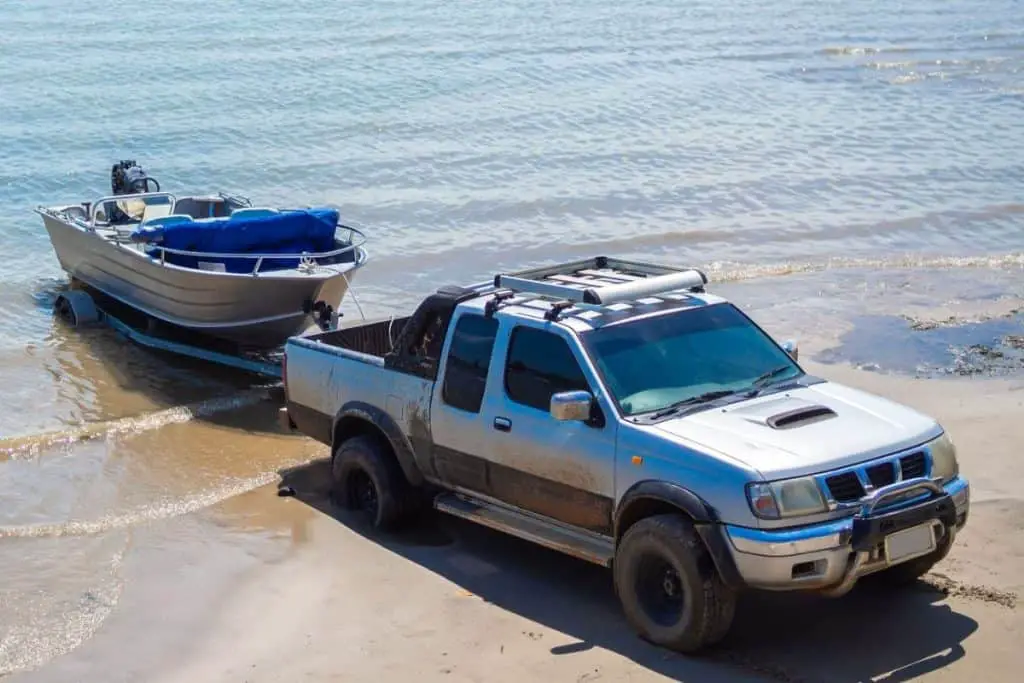
Why Tongue Weight Is Crucial to Boat Towing Safety
Tongue weight is crucial to towing safety because it affects the weight exerted on the hitch ball. While the tongue weight doesn’t have to be exact, it should be within a specified range. You could still tow the boat trailer when the tongue weight is slightly higher or lower than the recommended range, but it causes safety issues.
To understand how tongue weight affects boat towing safety, it’s important to know how tongue weight works. All trailers have a hitch ball that bears most of the trailer’s weight and provides balance when you’re steering the vehicle.
The weight adjustment on this hitch ball is called the tongue weight, and it can affect how well the trailer stays balanced when you’re driving. Tongue weight doesn’t only affect how much weight is on the trailer’s wheels, but it also affects the weight distribution on your vehicle’s wheels.
Too much weight on the back or front wheels of your vehicle can cause significant control problems, especially when you’re towing a heavy boat. If you’re driving a heavier vehicle, such as an SUV, there’s also an increased risk of the vehicle capsizing, especially when you reach a faster speed.
When the tongue weight is above the recommended range, your vehicle will bear more weight on its rear wheels, making it much more difficult to steer. You’ll also use more fuel, and driving fast may be an issue.
However, having too little tongue weight carries a higher safety risk. Since most of the weight will be on the back wheels of the trailer, it will be more difficult to maneuver. The trailer may even swing from side to side, causing the boat clamps to break. If this happens while you’re driving on a major road, it could lead to a catastrophic accident.
Another issue with having the wrong tongue weight is that your brakes may be negatively affected. The trailer will take longer to stop and may sway when you brake hard.
So, from a safety perspective, having the right tongue weight is crucial and not something that you should take lightly.
How To Accurately Determine Your Trailer’s Tongue Weight
Unfortunately, there isn’t any automatic gauge on boat trailers that will indicate whether your tongue weight is right or not. If you have experience, you may be able to tell whether the tongue weight is accurate without weighing the trailer.
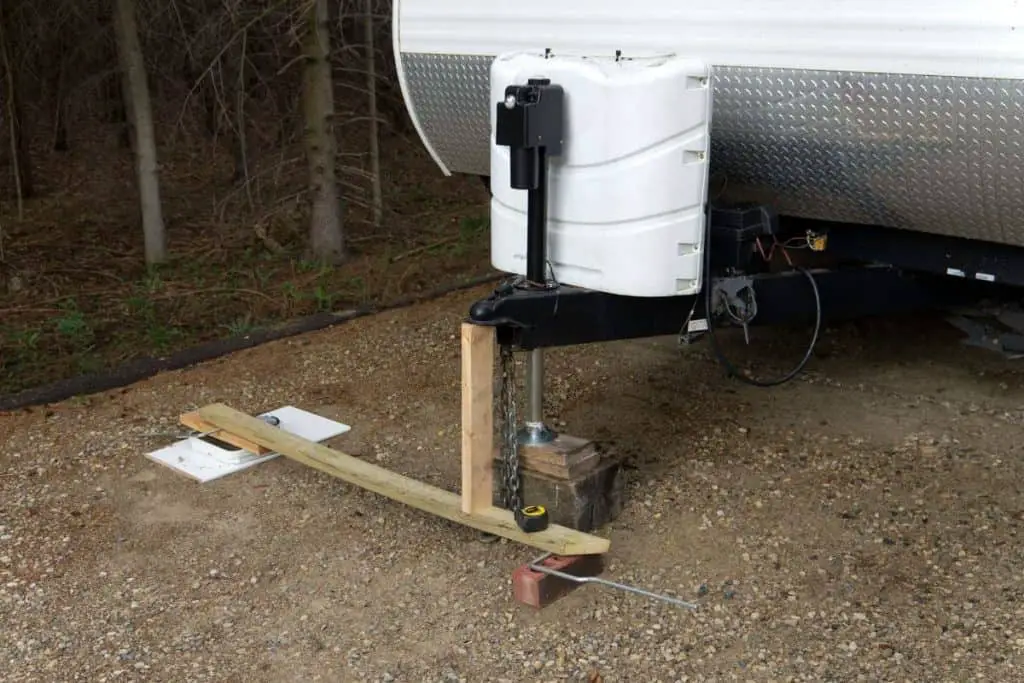
However, the best way to accurately determine the trailer’s tongue weight is to measure it. You can use a bathroom scale to measure tongue weight or a weighing station for more accuracy.
To measure tongue weight in a weighing station, note your vehicle’s weight and then weigh the vehicle with the trailer attached. Make sure the trailer’s wheels are off the weighing machine. The difference between the two weights will give you the tongue weight.
When using this method to measure the vehicle’s tongue weight, be careful not to let the wheels come onto the weighing machine, or you’ll have an inaccurate reading. Remember, the tongue weight is the weight that’s exerted on the hitch ball and not the total trailer weight.
Using a bathroom scale to measure tongue weight is slightly more complex, but you can get accurate readings if you weigh it properly. Simply place the trailer’s jack on the weighing machine, but only do so when the trailer’s jack is on the level with the vehicle’s hitch ball.
If you place the weight machine lower than the usual height of the hitch ball, you’ll get an inaccurate reading.
What’s the Ideal Range for Tongue Weight?
There’s no single value of tongue weight that works for every trailer. The ideal tongue weight will depend on the total weight of your loaded boat trailer, the type of vehicle you’re driving, and many other factors. In most cases, the ideal tongue weight is around 7-15% of the gross towing weight of the trailer.
This value will differ depending on the type of vehicle you’re using to tow the boat and the weight of your boat for heavier loads, and it’s better to keep the tongue weight higher but within a safe range. If you’re towing a smaller boat using a conventional trailer with an SUV, then 8-9% tongue weight is ideal.
Tongue weight is directly related to the total weight of your trailer, so it’s important to keep this in mind when loading a boat trailer. The best thing about setting the tongue weight in your boat is that once you get it right, you won’t have to change it often since the boat’s weight remains consistent.
How To Adjust Your Boat Trailer’s Tongue Weight
Adjusting tongue weight is easier when you’re towing movable objects, but it can be complex when towing a boat. With regular trailers, you can easily adjust the tongue weight by moving the objects to a different position in the trailer. However, boats are in fixed positions and can’t easily be moved, so you’ll have to adjust the boat’s position on the trailer.
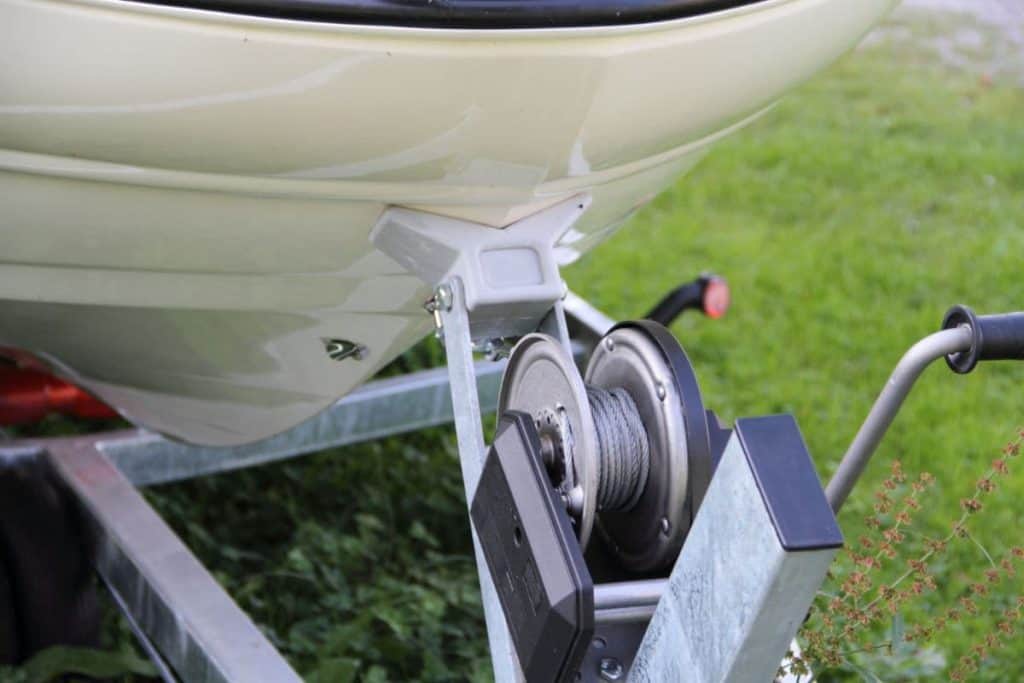
Fortunately, most boat trailers are designed so the boat position is fixed on the trailer, and there isn’t any space to adjust the boat’s position. In such cases, you’ll have to look at how to increase or decrease the weight of your trailer.
To increase the tongue weight in your boat, try adding more weight in the front part of the boat. If you’re going fishing or camping, try moving the equipment in the bow of the boat. This will balance out the tongue weight if it’s too little.
Decreasing tongue weight is slightly more complex, and you’ll have to remove some of the gear from the boat. If you’ve removed all the gear from your boat and the tongue weight is still too high, then there might be something wrong with your trailer.
Boat trailers are designed to have a balanced tongue weight when the trailer is perfectly attached to the hitch ball. If your boat is smaller or bigger than the ideal boat size for the boat trailer, then you’ll have to consider getting a trailer that fits your boat with more balance.
Other Boat Towing Safety Tips
Ensuring proper tongue weight on the hitch ball is crucial to boating safety, but it’s not the only thing you should be looking at. Other things to consider include the towing hitch class of the boat, the vehicle’s towing capacity, your trailer’s brake system, and tire pressure.
These are some crucial safety factors to consider when towing your boat.
Ensure the Trailer Matches the Boat’s Hitch Class
Before getting a trailer, always ensure that it can handle your boat’s weight. If your trailer’s hitch capacity isn’t suitable for the boat’s weight, you won’t be able to tow the boat safely. Class 1 trailers can handle boats up to 2000 pounds (907 kg), while class 5 trailers are for heavier boats, up to 18000 pounds (8165 kg).
Check Your Vehicle’s Towing Capacity
While smaller vehicles can tow boats, never attempt to tow more than your vehicle’s capacity. Not only is it unsafe for the vehicle, but it’s also a major road safety violation. Small cars should only tow class 1 boat trailers, and even larger vehicles cannot tow class 4 and 5 boats. The last thing you want is an engine or brake failure when towing your boat!
Check the Trailer’s Brakes and Electric System
Always check your trailer’s brake lights and electric system before going on any trip. Sometimes the indicator or brake lights may not work properly, and this can be a major safety risk. At the very least, it may result in a traffic violation, so make sure you thoroughly understand the road safety regulations for towing boats.
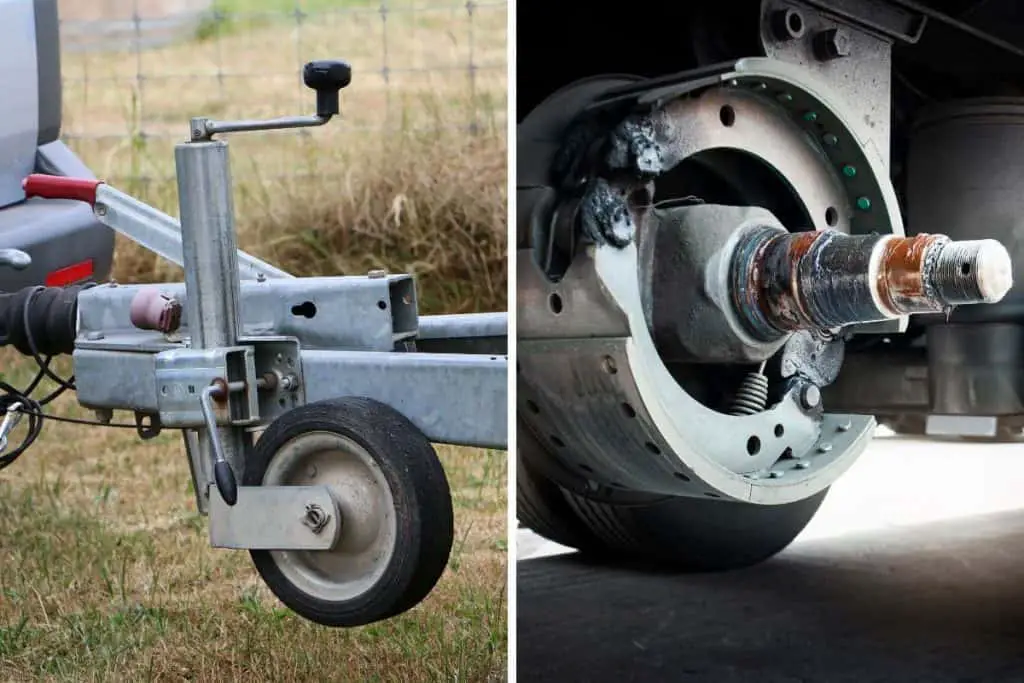
Additionally, never compromise on the tire pressure of your trailer or vehicle. Having a slightly more inflated or deflated tire can make a world of difference when it comes to steering the vehicle and boat trailer.
Final Thoughts
Boat trips are fun, but you wouldn’t want your boat to get damaged because of a miscalculation when setting the tongue weight. Always calculate the ideal tongue weight range for your trailer and double-check that it’s set within the proper weight range before going on any trip.
Also, remember to follow other safety checks and ensure that your trailer’s brakes, electrical system, and tire pressure are optimal before hitching the trailer to your vehicle.
Project” Watch Your Tongue” Boating
Check out our article on: How To Tow A Boat Trailer: (Guide On Trailering)

